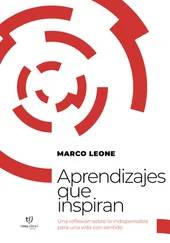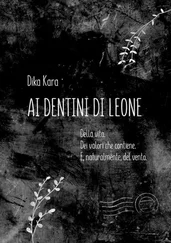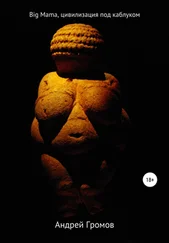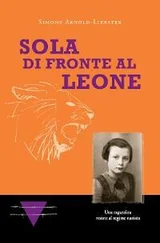On the bus she closed her eyes, wanting to sleep the exact duration of the journey. She opened her eyes every few minutes, in fear of a stranger’s touch or that someone might think her unwell and want to help her the way people do here when you’re unwell — with a series of kindnesses and offers of assistance that make you feel even more unwell. Every time she opened her eyes she’d see something different. Apartment towers at the city’s edge, women at an improvised market, one of them holding a box of matches and smiling, yellowed buildings and a poplar, young guys smoking in front of a movie theater, a house with a sign saying “Kolobara.” It wasn’t necessarily a single city. It could have been ten different cities, one for each opening of her eyes. Each was equally unfamiliar and unknown and only a queasy childhood premonition told you that in some way, distant but real, you belong to this scene; this same premonition reminded Marina of her anxiety when she used to go into a supermarket where a bitchy check-out woman, without asking, would give her a piece of bubble gum in place of her small change, at least until Marina was old enough to fire back lady, what do you think, is this appropriate behavior , but the premonition might have easily reminded her of something else, not that it mattered; Marina just didn’t want anyone touching her or talking to her. Ideally your entrance into such worlds would be invisible, and you would stay that way, not uttering a word until you had established possible connections to your past. Spoken in such places, words disappear into dark spaces where you’ve never been in your life, or where you were once but have since departed, and then those words return when you want them least, to a world where you really are, and wound you.
She got off the bus and still hadn’t said a word, but she would have to speak to the taxi driver. He’s a little guy, stumpy and greasy-haired. Marina said Senjak and showed him a piece of paper with the name of the street written on it. She coughed, surprised by the tone of her own voice. The taxi driver was silent, a city full of people passed by, strangely making their way through the dust clouds, as if they were the clouds upon which those drunken angels sat perched over Surčin. In the coming days Marina will watch the dust, turbid and impenetrable, and when they speak on the phone, she’ll tell Him that covered in dust Belgrade looked like Macondo in the final chapter.
Before the taxi gets to Senjak, it’s probably a good time to explain who He is. She hasn’t seen Him since leaving Sarajevo, and at the time, He was her boyfriend. Today she doesn’t know what He is to her, but they are in touch from time to time, presumably because they never said their goodbyes and so have endured like baffling chronic illnesses endure, the ones that don’t kill you or cause you pain but hang around until you’re dead all the same. They could meet, but probably won’t — although they want to — they’ll probably never see each other again. If they passed each other in the street they wouldn’t recognize each other. Marina doesn’t know why things are the way they are, perhaps because sometimes people can become destroyed cities to each other.
Her father’s name was written on the door. She raised her finger to the bell and then paused. Between her finger and the round red button was a space barely wide enough for a piece of paper, but she didn’t press down. How does this go , she used to say aloud when she had an unsolvable math exercise, easy as pie , said a voice she was no longer sure was her father’s. She heard footsteps inside, and what she thought was the clattering of plates, she could have been standing there for hours, her index finger pointing at something, if only that would have been the end of the matter, if only something painful or deathly hadn’t clattered from the other side of the door, beckoning her back into a life she had sloughed off.
The bell didn’t sound like a bell. It squealed like a little computer with an empty battery, the doors burst open; her mother, wrinkles, wrinkles, wrinkles, a face that had fallen like a sail at half-mast, the voice still the same, her words ones that once annoyed Marina, arms enfolding, arms holding tight, Marina says wait and smiles, her smile broad and painful, her father white and gray, her father huge like the tallest tower of cards, his face firm like the face of a father should be, always firm, that’s how he thought he should be. Just don’t talk about yourself, just ask stuff, smother and drown them in questions, admit nothing because anything you say will hurt them. They’ll talk, they talk in stops and starts, they don’t know how to talk to a daughter after three years, you don’t learn that sort of thing anywhere, who would’ve thought they’d need to know something like that, if they’d known they would have learned, there must be a way to do it, there must be a manual somewhere, people know about this stuff, they have to, why are you so skinny , her mother’ll ask her, there she goes, leave her alone , her father says, he’s proud of his young daughter as if she were a son, because he doesn’t have a son, hence the leave her alone .
Where’s Astor? she asked, heading to the living room. A black cocker spaniel lay in an armchair, already a fourteen-year-old, watching this strange woman on her approach with her grimace ever shriller, who is she and what does she want, strangers never grimace at him like this, he took a long look at Marina, she looked at him and knew he didn’t recognize her. At that moment she wasn’t hurt Astor didn’t recognize her, nor was she when she was telling Him about it later, but she couldn’t be sure it wouldn’t one day hurt, so she tried not to give it much thought, just said her dog hadn’t recognized her, not a hint of sadness in her voice, but it brought a sadness out in Him.
She had been fourteen when Astor came into her life. Today she is twice as old, making her as old as a little girl plus an old dog. That’s about how she had felt in Belgrade at her parents’ side, in a different life, one neither frenetic nor euphoric, but gentle and slow, so you felt the pain all the more acutely the second it drew near. Astor had been the end result of the deepest grief, perhaps still the deepest she keeps. The grief ’s name was Hefest, a brown cocker spaniel that had been hit by a car in Grbavica and had spent the night dying in her room, in her lap. It was then she made a wish that she would never again get close to death, that she might run from everything precious and dear before it disappeared. Her father buried Hefest in the yard of the Viktor Bubanj barracks, and it was then for the first and only time in her life she saw her father cry.
I’m going to take him for a walk today , she said, grabbing Astor’s collar and leash, noticing they were new, and leading him out in front of their building. It was something she’d done a thousand times in her life, and now she had to do it again, to feel like it was no big deal and that she could live without it, that it was something she didn’t need to remember, something she had to forget, and the only way she could do so was to again, after so much time, take a dog that no longer recognizes her, because it’s already much older than her life, for a walk in the park, which isn’t actually the same park, but that doesn’t matter. The park too was so full of dust you had to sneeze it out, to give yourself a good shake before boarding the plane, shake loose all excess; dust, walking the dog, whatever. Astor , she shouted, the dog didn’t turn around, Astor , he waddled on like an old man, one leg in front of the other, but still fast enough that she had to break into a jog to catch him. Astor , Marina screamed, fuming mid-park that not only did the dog not recognize her, he held her in contempt. It was a sudden strange reflex from a former time, Astor was again her business, again her dog, and he shouldn’t behave like this because what good is a dog like this, what’s the point taking such a dog for a walk if this is how it’s all going to end. In that instant Astor shot a random glance back, saw Marina’s scowl and furious waving, turned around, and again, slowly, step by step, like a good little doggie, returned to her knee.
Читать дальше












